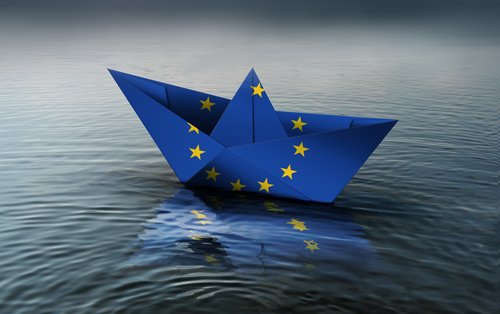ECMI Emphasises Role of Minorities in Regional Development in Its Proposals to Conference on Future of Europe

On 9 May 2021 the Conference on the Future of Europe was finally launched after a one-year delay caused by the outbreak of the Covid-19 pandemic. It is a large-scale initiative by the EU institutions to bring the EU closer to its citizens and provide a space for them to debate on Europe’s challenges and priorities. One of the tools of how this conference aims to achieve its aim is a multilingual digital platform where citizens, associations, or institutions can share ideas and send online submissions. These are then analysed and published throughout the Conference.
The ECMI strongly believes in the importance of diversity and the role of minorities and minority issued in the future of Europe. In order to bring the topic of minorities forward, the ECMI has submitted the following four ideas to the Conference platform:
Reinvigorate democratic legitimation
Minorities represent a form of historically grown diversity that goes beyond nation-state categories and is therefore both pre- and post-national in character. The goal of minorities is not to mirror national egoisms merely in a regional or ethnic form and thereby generate possible separatist division. Rather, minorities stand for making sure that individuals and groups have a fundamental opportunity to experience, strengthen and pass on identities that differ from the majority society. And that this identity is not only tolerated by the nation-states, but also actively supported. Thus, autochthonous minorities represent transnational links for a Europe that is characterized by a historically determined heterogeneity that, in turn, is more than the sum total of nation-states. For this reason, minorities call for the creation of European electoral law, which would allow the formation of European-wide, transnational political parties and electoral lists. It should no longer be about appointing representatives of national interests, but rather a choice across visions of pan-European policy. Equally the European Parliament should be given the right of legislative initiative so as to increase democratic legitimation at the European level. With this kind of double paradigm shift boundaries in our minds will be deconstructed and a self-consciousness among voters as European citizens will be strengthened.
See this proposal on the Conference platform.
Promote minority contributions to cross-border development
Regional development frequently involves cross-border, inter-state cooperation. This is ever more the norm within a closely integrated European Union. In such regions, however, national minorities may also be present as a result of historical-political border arrangements.National minorities in such regions need to be promoted as a resource for economic, social and political development. Through their multi-lingual and/or multi-cultural abilities, national minorities can serve a synergetic function in both mediating contacts as well as spearheading development collaboration. When strengthening its cross-border regional development schemes, the EU needs to foster institutionalized roles for relevant national minorities, including consultative mechanisms, but also support schemes for them to realize their bridge-building potential.
See this proposal on the Conference platform.
Evaluate the impact of territorial reforms on minorities
Government authorities increasingly see the consolidation of territorial-administrative units within a country as key to the promotion of regional development in a globalized world. The amalgamation of not only smaller local governments, but also economic resources and human capital is seen as a prerequisite for attracting investment and fostering development. Such reforms, however, should not undermine the territorial cohesion or representational strength of national minorities. Minorities should not be diluted in the process of consolidation or amalgamation of local government authorities. National minorities should continue to have a place in the building of regional identities and the promotion of their own national cultures. The European Union should take care to monitor the effect of such administrative reforms on the well-being of national minority communities.
See this proposal on the Conference platform.
Include minorities in regional development planning
Regional development planning in any country needs to be a comprehensive endeavor that encompasses both the needs and the potential of all the inhabitants of a region. In areas inhabited by national minorities it is especially important to recognize both the effect development can have on such groups as well as the role that these groups can play in positive regional development. Regional development in economic and social terms must be planned and implemented without endangering minorities’ traditional livelihoods, cultural identity or community wherewithal. Regional development should also be carried out in such a manner as to overcome any socio-economic disparities afflicting minorities and by taking full advantage of what minority communities can offer. The active inclusion of national minorities in regional development planning needs to be a bedrock principle in this regard. This includes both EU member-states as well as EU regional development policy as a whole.
See this proposal on the Conference platform.
ECMI Senior Researcher Ljubica Djordjević has also addressed the inclusion of minorities in the Conference in her blog post. She draws attention to the importance of involving national minorities in the process, both regarding participation and issues covered. According to her, the Conference should strive to reach out to various population groups, including the ones in minority or marginalized position. Moreover, the Conference could serve as a good opportunity to reconsider the EU’s position with regard to the protection of national minorities: in a complex and increasingly diverse Europe, the EU has to take responsibility and search for innovative models of diversity management, including the protection of national minorities.

